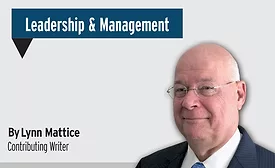Home » C-suite security
Articles Tagged with ''C-suite security''
As cyber and physical risks build up against the enterprise, security buck must stop with the board.
5 Things Every Board Member Needs to Know about Security
October 13, 2015
Despite Global Upset, CSOs Secure Business, As Usual
Protecting and supporting stakeholders on a global scale through investments in security operations centers (SOCs), intelligence services and travel support companies has become a best practice for leading security programs.
September 1, 2014
Measuring the CISO's Evolving Sphere of Influence
They are the executives who control information security issues in an enterprise and are responsible for securing anything related to data.
January 6, 2014
Sign-up to receive top management & result-driven techniques in the industry.
Join over 20,000+ industry leaders who receive our premium content.
SIGN UP TODAY!Copyright ©2026. All Rights Reserved BNP Media.
Design, CMS, Hosting & Web Development :: ePublishing




